All videos (English)
What is concealed from us about Venezuela – parallels to Turkey - short ...
30.12.2019
Subtitle "Afrikaans" was produced by machine.Subtitle "አማርኛ" was produced by machine.Subtitle "العربية " was produced by machine.Subtitle "Ārāmāyâ" was produced by machine.Subtitle "azərbaycan dili " was produced by machine.Subtitle "беларуская мова " was produced by machine.Подзаглавието "България" е създадено от машина.সাবটাইটেল "বাংলা " মেশিন দ্বারা তৈরি করা হয়েছিল।Subtitle "བོད་ཡིག" was produced by machine.Subtitle "босански" was produced by machine.Subtitle "català" was produced by machine.Subtitle "Cebuano" was produced by machine.Subtitle "ગુજરાતી" was produced by machine.Subtitle "corsu" was produced by machine.Podtitul "Čeština" byl vytvořen automaticky.Subtitle "Cymraeg" was produced by machine.Subtitle "Dansk" was produced by machine.Untertitel "Deutsch" wurde maschinell erzeugt.Subtitle "Untertitel" was produced by machine.Subtitle "Ελληνικά" was produced by machine.Subtitle "English" was produced by machine.Subtitle "Esperanto" was produced by machine.El subtítulo "Español" se generó automáticamente.Subtitle "Eesti" was produced by machine.Subtitle "euskara" was produced by machine.Subtitle "فارسی" was produced by machine.Subtitle "Suomi" was produced by machine.Le sous-titrage "Français" a été généré automatiquement.Subtitle "Frysk" was produced by machine.Subtitle "Gaeilge" was produced by machine.Subtitle "Gàidhlig" was produced by machine.Subtitle "Galego" was produced by machine.Subtitle "Schwizerdütsch" was produced by machine.Subtitle "هَوُسَ" was produced by machine.Subtitle "Ōlelo Hawaiʻi" was produced by machine.Subtitle "עברית" was produced by machine.Subtitle "हिन्दी" was produced by machine.Subtitle "Mẹo" was produced by machine.Subtitle "Hrvatski" was produced by machine.Subtitle "Kreyòl ayisyen " was produced by machine.Subtitle "Magyar" was produced by machine.Subtitle "Հայերեն" was produced by machine.Subtitle "Bahasa Indonesia " was produced by machine.Subtitle "Asụsụ Igbo " was produced by machine.Textun"Íslenska" var framkvæmt vélrænt.Sottotitoli "Italiano" sono stati generati automaticamente.字幕は"日本語" 自動的に生成されました。Subtitle "Basa Jawa" was produced by machine.Subtitle "ქართული" was produced by machine.Subtitle "қазақ тілі " was produced by machine.Subtitle "ភាសាខ្មែរ" was produced by machine.Subtitle "ಕನ್ನಡ" was produced by machine.Subtitle "한국어" was produced by machine.Subtitle "कोंकणी語" was produced by machine.Subtitle "کوردی" was produced by machine.Subtitle "Кыргызча" was produced by machine.Subtitle " lingua latina" was produced by machine.Subtitle "Lëtzebuergesch" was produced by machine.Subtitle "Lingala" was produced by machine.Subtitle "ພາສາ" was produced by machine.Subtitle "Lietuvių" was produced by machine.Subtitle "Latviešu" was produced by machine.Subtitle "fiteny malagasy" was produced by machine.Subtitle "te reo Māori" was produced by machine.Subtitle "македонски јазик" was produced by machine.Subtitle "malayāḷaṁ" was produced by machine.Subtitle "Монгол хэл" was produced by machine.Subtitle "मराठी" was produced by machine.Subtitle "Bahasa Malaysia" was produced by machine.Subtitle "Malti" was produced by machine.Subtitle "မြန်မာစာ " was produced by machine.Subtitle "नेपाली" was produced by machine.Ondertitels "Nederlands" machinaal geproduceerd.Subtitle "Norsk" was produced by machine.Subtitle "chiCheŵa" was produced by machine.Subtitle "ਪੰਜਾਬੀ" was produced by machine.Podtytuł "Polska" został utworzony przez maszynę.Subtitle "پښتو" was produced by machine.Subtitle "Português" was produced by machine.Subtitle "Română" was produced by machine.Subtitle "Язык жестов (Русский)" was produced by machine.Субтитры "Pусский" были созданы машиной.Subtitle "Kinyarwanda" was produced by machine.Subtitle "सिन्धी" was produced by machine.Subtitle "Deutschschweizer Gebärdensprache" was produced by machine.Subtitle "සිංහල" was produced by machine.Subtitle "Slovensky" was produced by machine.Subtitle "Slovenski" was produced by machine.Subtitle "gagana fa'a Samoa" was produced by machine.Subtitle "chiShona" was produced by machine.Subtitle "Soomaaliga" was produced by machine.Subtitle "Shqip" was produced by machine.Subtitle "србски" was produced by machine.Subtitle "Sesotho" was produced by machine.Subtitle "Basa Sunda" was produced by machine.Undertext "Svenska" är maskinell skapad.Subtitle "Kiswahili" was produced by machine.Subtitle "தமிழ்" was produced by machine.Subtitle "తెలుగు" was produced by machine.Subtitle "Тоҷикй" was produced by machine.Subtitle "ภาษาไทย" was produced by machine.ንኡስ ኣርእስቲ "ትግርኛ" ብማሽን እዩ ተፈሪዩ።Subtitle "Türkmençe" was produced by machine.Subtitle "Tagalog" ay nabuo sa pamamagitan ng makina.Subtitle "Türkçe" was produced by machine.Subtitle "татар теле" was produced by machine.Subtitle "Українська " was produced by machine.ذیلی عنوان "اردو" مشین کے ذریعہ تیار کیا گیا تھا۔Subtitle "Oʻzbek" was produced by machine.Subtitle "Tiếng Việt" was produced by machine.Subtitle "Serbšćina" was produced by machine.Subtitle "isiXhosa" was produced by machine.Subtitle "ייִדיש" was produced by machine.Subtitle "Yorùbá" was produced by machine.Subtitle "中文" was produced by machine.Subtitle "isiZulu" was produced by machine.
kla.TV accepts no liability for defective translation.kla.TV accepts no liability for defective translation.kla.TV accepts no liability for defective translation.kla.TV accepts no liability for defective translation.kla.TV accepts no liability for defective translation.kla.TV accepts no liability for defective translation.kla.TV не носи отговорност за некачествен превод.অপর্যাপ্ত অনুবাদের জন্য kla.TV কোন দায় বহন করে না।kla.TV accepts no liability for defective translation.kla.TV accepts no liability for defective translation.kla.TV accepts no liability for defective translation.kla.TV accepts no liability for defective translation.kla.TV accepts no liability for defective translation.kla.TV accepts no liability for defective translation.kla.TV nenese žádnou odpovědnost za chybné překlady.kla.TV accepts no liability for defective translation.kla.TV accepts no liability for defective translation.kla.TV übernimmt keine Haftung für mangelhafte Übersetzung.kla.TV accepts no liability for inadequate translationkla.TV accepts no liability for defective translation.kla.TV accepts no liability for defective translation.kla.TV accepts no liability for defective translation.kla.TV no se hace responsable de traducciones incorrectas.kla.TV accepts no liability for defective translation.kla.TV accepts no liability for defective translation.kla.TV accepts no liability for defective translation.kla.TV accepts no liability for defective translation.kla.TV n'assume aucune responsabilité en cas de mauvaise traduction.kla.TV accepts no liability for defective translation.kla.TV accepts no liability for defective translation.kla.TV accepts no liability for defective translation.kla.TV accepts no liability for defective translation.kla.TV accepts no liability for defective translation.kla.TV accepts no liability for defective translation.kla.TV accepts no liability for defective translation.kla.TV accepts no liability for defective translation.kla.TV accepts no liability for defective translation.kla.TV accepts no liability for defective translation.kla.TV accepts no liability for defective translation.kla.TV accepts no liability for defective translation.kla.TV nem vállal felelősséget a hibás fordításértkla.TV accepts no liability for defective translation.kla.TV accepts no liability for defective translation.kla.TV accepts no liability for defective translation.kla.TV tekur enga ábyrgð á áræðanleika þýðingarinnarKla.TV non si assume alcuna responsabilità per traduzioni lacunose e/o errate.Kla.TV は、不適切な翻訳に対して一切の責任を負いません。kla.TV accepts no liability for defective translation.kla.TV accepts no liability for defective translation.kla.TV accepts no liability for defective translation.kla.TV accepts no liability for defective translation.kla.TV accepts no liability for defective translation.kla.TV accepts no liability for defective translation.kla.TV accepts no liability for defective translation.kla.TV accepts no liability for defective translation.kla.TV accepts no liability for defective translation.kla.TV accepts no liability for defective translation.kla.TV accepts no liability for defective translation.kla.TV accepts no liability for defective translation.kla.TV accepts no liability for defective translation.kla.TV accepts no liability for defective translation.kla.TV accepts no liability for defective translation.kla.TV accepts no liability for defective translation.kla.TV accepts no liability for defective translation.kla.TV accepts no liability for defective translation.kla.TV accepts no liability for defective translation.kla.TV accepts no liability for defective translation.kla.TV accepts no liability for defective translation.kla.TV accepts no liability for defective translation.kla.TV accepts no liability for defective translation.kla.TV accepts no liability for defective translation.kla.TV accepts no liability for defective translation.kla.TV aanvaardt geen aansprakelijkheid voor foutieve vertalingen.kla.TV accepts no liability for defective translation.kla.TV accepts no liability for defective translation.kla.TV accepts no liability for defective translation.kla.TV nie ponosi odpowiedzialności za wadliwe tłumaczenie.kla.TV accepts no liability for defective translation.kla.TV accepts no liability for defective translation.kla.TV accepts no liability for defective translation.kla.TV accepts no liability for defective translation.kla.TV не несет ответственности за некачественный перевод.kla.TV accepts no liability for defective translation.kla.TV accepts no liability for defective translation.kla.TV accepts no liability for defective translation.kla.TV accepts no liability for defective translation.kla.TV accepts no liability for defective translation.kla.TV accepts no liability for defective translation.kla.TV accepts no liability for defective translation.kla.TV accepts no liability for defective translation.kla.TV accepts no liability for defective translation.kla.TV nuk mban asnjë përgjegjësi për përkthime joadekuate.kla.TV accepts no liability for defective translation.kla.TV accepts no liability for defective translation.kla.TV accepts no liability for defective translation.Kla.TV tar inget ansvar för felaktiga översättningar.kla.TV accepts no liability for defective translation.kla.TV accepts no liability for defective translation.kla.TV accepts no liability for defective translation.kla.TV accepts no liability for defective translation.kla.TV accepts no liability for defective translation.kla.TV ንዝኾነ ጉድለት ትርጉም ዝኾነ ይኹን ሓላፍነት ኣይቅበልን እዩ።kla.TV accepts no liability for defective translation.kla. Walang pananagutan ang TV sa mga depektibong pagsasalin.kla.TV accepts no liability for defective translation.kla.TV accepts no liability for defective translation.kla.TV accepts no liability for defective translation.kla.TV عیب دار ترجمہ کے لیے کوئی ذمہ داری قبول نہیں کرتا ہے۔kla.TV accepts no liability for defective translation.kla.TV accepts no liability for defective translation.kla.TV accepts no liability for defective translation.kla.TV accepts no liability for defective translation.kla.TV accepts no liability for defective translation.kla.TV accepts no liability for defective translation.kla.TV accepts no liability for defective translation.kla.TV accepts no liability for defective translation.
This is a modal window.
The media could not be loaded, either because the server or network failed or because the format is not supported.
What is concealed from us about Venezuela – parallels to Turkey - short version (2 of 2)
War again?! Donald Trump is indeed a big player in the power struggle for Venezuela. But what are the real reasons for the conflict? This broadcast reveals hidden facts and parallels to Turkey. See for yourself...
[continue reading]
What is concealed from us about Venezuela – parallels to Turkey - short version (2 of 2)
Download broadcast and attachments in the wanted quality:
Useage rights:
Standard-Kla.TV-Licence
Trending on Kla.TV




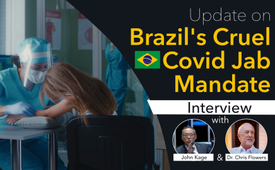
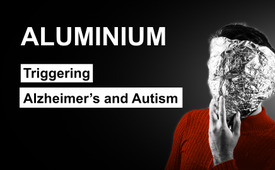
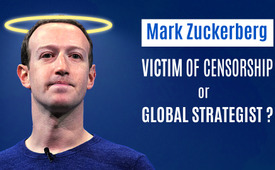



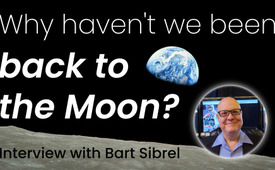
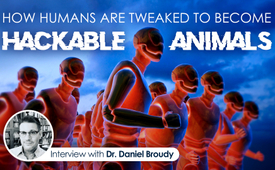

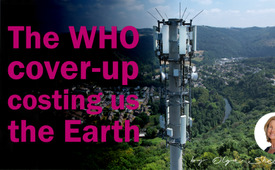

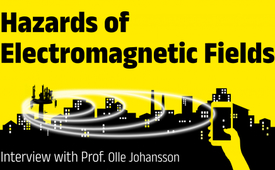






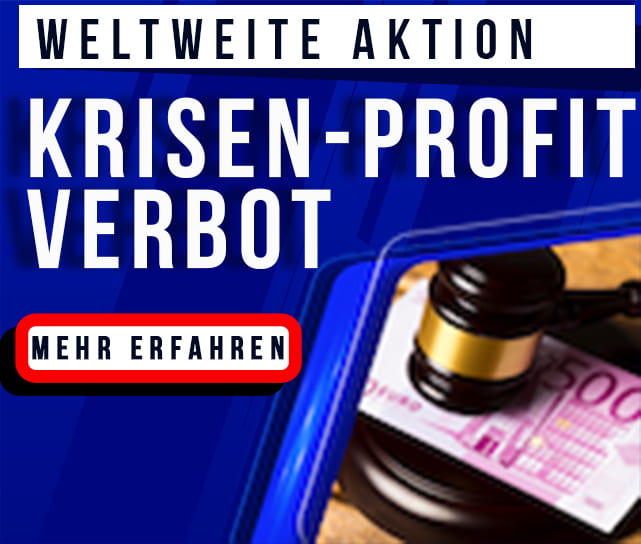
Sendungstext
herunterladen
03.01.2020 | www.kla.tv/15459
What is behind the power struggle with Venezuela's President Maduro and what are the real reasons why Maduro should be overthrown by all means? The YouTube channel Studio Berlin has investigated these questions in a 15-minute video “What is concealed from us about Venezuela – parallels to Turkey”. According to its own statements, “Studio Berlin tries to shed light on topics [...] that are concealed or distorted by the mainstream media”. The operator of Studio Berlin is known to Kla.TV. The video is not about rating President Nicolás Maduro or the Turkish President Erdoğan . These may very well also be viewed critically. But the point is to show the red threads behind coup attempts controlled from the outside. As Klagemauer.TV has shown using historical examples, military interventions from outside can hardly be justified – and certainly not under the pretext of democracy and freedom. AFTER a military intervention the living conditions in such countries were indescribably worse than BEFORE the war. Examples can be found in the inserted programs. But now watch the actual YouTube movie “What is concealed from us about Venezuela - parallels to Turkey”, which already has well over 450.000 clicks. Videotext: Is the USA planning a military coup against Venezuela? Will Venezuela be the next Iraq or the next Libya? Following a meeting with President Trump's security advisor John Bolton, US Senator Marco Rubio also called for a military intervention in Venezuela. Why is the USA so keen to get involved in Venezuela? What is the reason? It is about restoring democracy in Venezuela, the US senator said. When Americans talk about restoring democracy in another country, you have to listen very carefully, because that is usually not very good for those countries. Venezuela – an ally of Turkey that maintains close contacts with Russia – is becoming a target of insatiable US power interests. Why? As always, the mainstream media conceal the true background. A look at this map gives us a clue about the true intentions of the USA. Venezuela has the largest oil reserves in the world. It whets the appetite of the military giant USA. Only a few years ago, in 2010, additional oil deposits were discovered in Venezuela. Within one year, the share of recorded oil reserves increased by more than 40% to 296.5 billion barrels of reserves. Venezuela thus rose to first place in the world and even overtook Saudi Arabia. Sanctions, punitive measures by the USA and the EU, targeted attacks by the financial cartels on the country's economic weaknesses led to hyperinflation. A coup attempt supported by the CIA and an assassination attempt against President Maduro were successfully averted. Even the riots in the country, which were controlled from abroad, did not lead to satisfactory success. So now it's a military intervention? A military intervention designed to bring about a decision in favor of the United States? Venezuela used to be one of the richest countries in the world. Due to the generated crisis, the population is currently facing hunger. Basic medical care is also currently in danger. The fact that Venezuela's economy is not more diversified and that it mainly depends on oil exports, makes it more vulnerable to foreign forces. Well, those were the days: When Venezuela experienced military governments at that time, the USA did not mind at all. It did not bother them at all that the country was not democratically governed. On the contrary. During this period of anti-democratic military governance, the USA had the best relations with Venezuela. The USA was Venezuela's largest trading partner. For years, the USA was able to purchase oil from Venezuela under very favorable conditions. The military dictatorship did not disturb them at all, as long as they got what they wanted: Access to and control over the oil. However, this changed at the latest in 1999, when Hugo Chávez came to power. He wanted his own people to benefit from this wealth as well and not just foreign oil companies. Although Venezuela was the fourth largest oil supplier in the world at that time, most people in the country did not benefit from the wealth of resources. After taking office, Hugo Chávez passed a referendum on a new constitution. This way the wealth of the country should benefit the citizens and not a very rich minority and foreign magnates. He wanted to improve education. He also set up a weekly TV show so that citizens could call him to ask questions and suggest improvements. Much of the oil revenue was used for social programs. Money was distributed to the poor. The state provided generous subsidies for food, housing, water, electricity or telephone costs. Refueling at the gas station was almost free. Usually the tip for the gas station attendant was higher than the cost of filling the tank itself. Nevertheless, from the outset private media, backed by the rich upper class, rushed against the new president. Venezuela had always supplied the USA with cheap crude oil. Hugo Chávez took over his country's oil companies and raised prices. As a result, the USA could no longer obtain cheap oil, as it had done all these years. To achieve this, Chávez had to disempower the upper class of the country, which treated state enterprises as private property. In February 2002, he announced that he would fire the directors of the state-owned oil companies and replace them with his own personnel. In the private media he was then compared with Mussolini and Hitler. The elite didn't want these plans to come true. The two leading opposition voices, Pedro Carmona, president of Venezuela's largest business federation and trade union leader Carlos Ortega, both with strong ties to the upper class, travelled to Washington. They met with the Bush administration to exchange views on Hugo Chávez. After the meeting, Venezuela's private media reported that the US government and the CIA were very concerned about the political situation in the country. And indeed, only a few weeks after this meeting, Venezuela's President Hugo Chávez was deprived of power after a three-year term in office by a CIA-controlled military coup. Pedro Carmona, the man who previously spoke to President George Bush, was sworn in as the new president and announced that Hugo Chávez had resigned voluntarily. However, the putschists had apparently underestimated the popularity of Hugo Chávez beyond measure. Especially in the slums of the city there were violent demonstrations and riots. Thousands of people were roaming the streets. Collisions with the police resulted in many deaths. Similar to a coup attempt in Turkey, the people of Venezuela fiercely resisted this coup. Despite being banned by the police, well over a million angry people took to the streets and stormed the government building. Carmona and some followers managed to escape from the building. Previously they had looted the safes. Hugo Chávez returned to his office and declared that his people had written history. The coup attempt had failed. The putschist president Carmona fled via Colombia to the USA and now lives in Miami. The Guardian reported on April 21st, 2002 that the US government not only knew that a coup would take place, they even actively supported the coup. One of the most important wire-pullers in the White House was Elliot Abrams. He was a Senior Director for Democracy, Human Rights, and International Operations at the National Security Council. This authority had already played a major role in the coup d'état in Chile in 1973 and supported regimes and death squads in Argentina, El Salvador, Honduras, Guatemala and other states. Hugo Chávez died of cancer in 2013. When Hugo Chávez came to power, the state took 50% of the profits from oil production. By the time he died in 2013, this share had risen to 90% – one of the highest in the world. After his death, the current president Maduro took over his office. In May of this year, a coup attempt was also made against him, but it was thwarted in time. Only a few weeks ago, during a military parade, an assassination attempt was even carried out on President Maduro, but it was not successful. The television showed images of bodyguards hectically trying to shield the head of state with bulletproof mats while hundreds of soldiers fled the square seeking cover. The assassins tried to murder the President in a bomb attack by using two drones. The drones exploded near the president. At this point I would like to open a bracket. Another interesting aspect is that the mainstream media doubted or downplayed this assassination attempt right from the start. Some even spoke of self-staging. If the assassination had succeeded, they might have celebrated the assassins as heroes. The mainstream media did the same with the coup attempt in Turkey. The coup attempt was played down as amateurish, even going so far as to blame the government itself for the coup attempt. However, if the coup had been successful, the mainstream media would probably celebrate the putschists as the saviors of democracy. It is therefore interesting that the same patterns of behavior can be observed again and again. No matter which country is concerned. Let's get back to the attempted murder on Maduro. Of course, the USA immediately denied that they had anything to do with this assassination attempt. However, nobody expected the USA and the CIA to admit it openly. Or did they after all? After a few months, CIA director Mike Pompeo had actually announced at a security forum in the US state of Colorado that he was very hopeful that there would soon be a change of government in Venezuela. CIA Director Pompeo had already held talks on this in Colombia and Mexico so that [quote] “they understand what they are supposed to do”. The CIA director continued [quote]: “Whenever it comes to a country as large and economically viable as Venezuela, America has a great interest in ensuring that it is stable and as democratic as possible. That's why we're working hard on it.” What's the meaning of this? This means that the CIA has no qualms about announcing the attacks and operations against the President of Venezuela in advance. Yes, I know that is bold. But what do they have to fear? Who today still questions these illegal machinations of the USA and its secret service CIA? Who? These people have an army of supporters within the mainstream media around the world. So who should question that? The pressure on Venezuela and its President is constantly increasing and the biased mainstream media, are contributing to this with their smear and disinformation campaign. Their previous actions against Venezuela and its president Maduro show parallels to Turkey. There, too, they are busy working on a regime change. Controlled unrest during the Gezi protests, similar to the Maidan protests in Ukraine, did not bring Turkey the desired success in 2013. After the CIA-supported coup attempt failed three years later, it is now being attempted with an economic war, as Erdoğan put it appropriately. Weak spots in the Turkish economy are being used to launch an attack. The whole thing is accompanied by the mainstream media's smear-and-manipulation campaign. In order to become less dependent on the abuse of the dollar, Venezuela has now introduced a crypto currency. The concept behind Petro is simple. The country issues a crypto currency that is covered by its natural resource of oil, thus making itself less dependent on the dollar. But even here Venezuela is not left alone. US President Trump immediately banned the crypto currency Petro within the USA. In an official statement, the White House announces that the state-backed crypto currency Petro is seen as a kind of loophole for Venezuela's president to circumvent American sanctions. Because of the critical situation, Venezuela has meanwhile brought part of its gold to its allies in Turkey. Instead of Switzerland, the gold should be refined in Turkey. Both countries are close friends. President Maduro is even a big fan of the Turkish history series Dirilis. The series provides an insight into the founding years of the 700-year old empire. At a press conference in Kyrgyzstan a few days ago, also the Turkish President Recep Tayyip Erdogan also called for national currencies to be used for trade. At the Economic Forum he described the dominance of the US dollar in world trade as a problem. [Quote] “It is high time to move to national currencies. Step by step we have to eliminate our dependence on the dollar,” he said. The Turkish president also said that Turkey is currently engaged in talks with Russia, Iran and China about converting trade to national currencies. Also the German Foreign Minister Heiko Maas, in a guest article for the “Handelsblatt” newspaper, spoke out in favor of reducing the financial dependence of Europeans on the Americans. According to Maas, it is necessary to form a counterweight to the USA. Interesting and remarkable developments to free oneself from the dollar dependence. Actually, something needs to change. For how long shall it go on like this, that a country like the USA puts other countries under pressure, attacks and exploits them out of power and energy-policy interests? What can stop this hunger for power of the USA? The UN? No, certainly not. The UN has become an instrument of US interests. The USA only has to raise a hand in the UN Security Council, and all the legitimate demands of the other countries are null and void and ineffective. The only way to stop the USA's hunger for power is for the other countries to join forces and raise their voices together. As more and more countries raise their voices against this injustice, the US had better reconsider every step it takes. For unity is the strength of the oppressed and disadvantaged peoples. It is high time to set limits to this US injustice. We don't want the blood of innocent people to flow because of oil. Not in Venezuela and not in other parts of the world! What is your opinion? Do you believe that the USA will attack militarily? What will happen? What do you think will happen? Write it in the comments, subscribe to this channel to keep up to date. See you soon and all the best!
from dd.
https://www.youtube.com/watch?v=D2x9myLcmC8